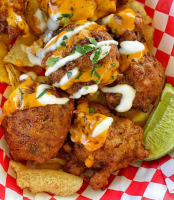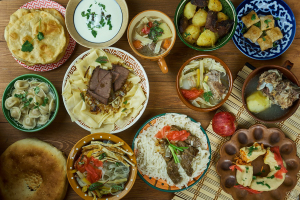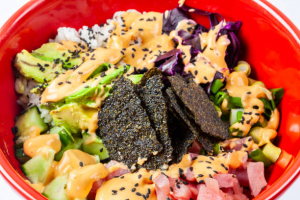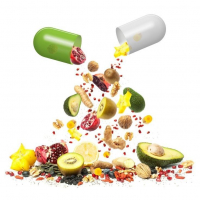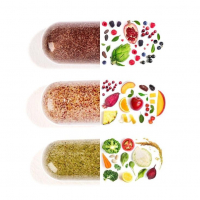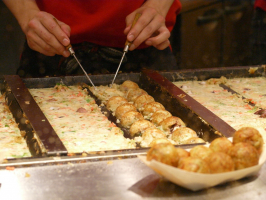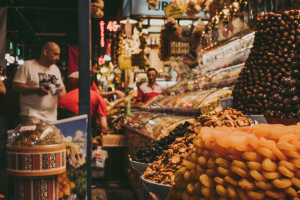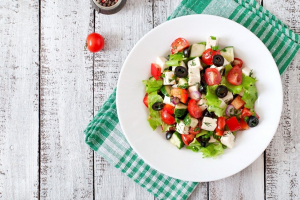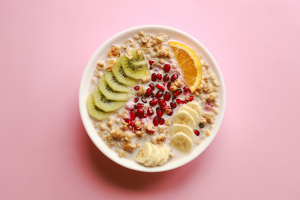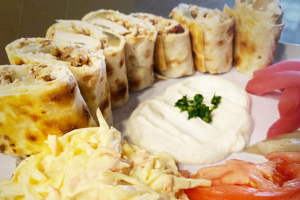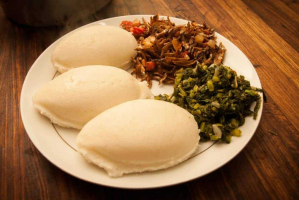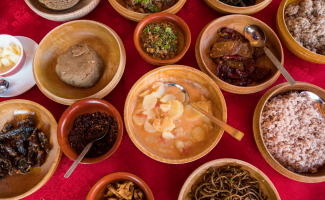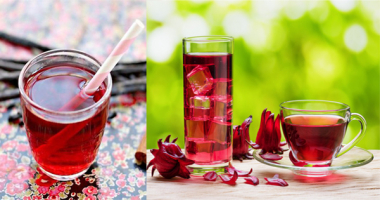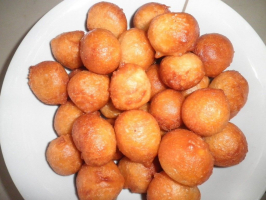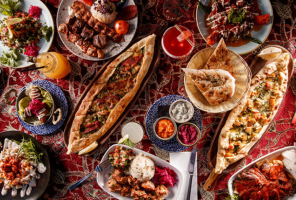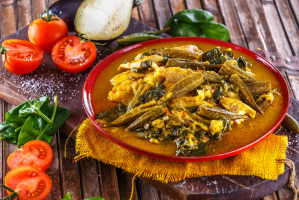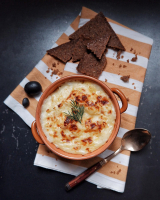Top 8 Best Beninese Foods
Benin produces some of the world's most delectable foods, thanks to a fusion of African and European flavors. Their foods are famous for their incredible ... read more...sauces, which accompany almost all foods in the country, from fine dining to street food. If you're planning a trip to Benin and want to get a taste of the local cuisine, Toplist hopes our list of the Top 8 greatest Beninese cuisines will point you in the right direction.
-
Wagassi, also known as Beninese cheese, is popular among both locals and visitors. Wagashi is a well-known cheese in West Africa! Wagashi is a popular North Beninese cheese, specifically Fulani's cheese made from fresh organic cow's milk. Despite the fact that wagashi is widely available in Parakou, Benin, it is now popular throughout West Africa.
Wagasi is the Dendi word for it, amo is the Fon word for it, wara is the Nago word for it, and gasaru is the Bariba word for it. It is also known as Fromage in France and Wangash in Mina.
Wagassi is a cow's milk cheese from northern Benin known for its mild flavor and red rind, which is achieved by dipping the cheese in warm water laced with Calotropis procera leaf extract. It is traditionally prepared by Fulani women and can be purchased in towns such as Parakou.
Wangash has a soft texture and a very mild flavor. It is typically fried and eaten as a snack with pepper paste. Because it has the texture of tofu, it can be used as meat in any soup. Originally, a herb known as cheese herb was used to ferment milk. Nowadays, when leaving the motherland, lemon or apple cider is used to ferment! This process gives them a nice red color and makes them much harder to keep them for a longer period of time.
The cheese is praised for its unique properties, such as its ability to resist melting even at high temperatures. It can be eaten fried or cooked in sauces, but it is rarely eaten raw.
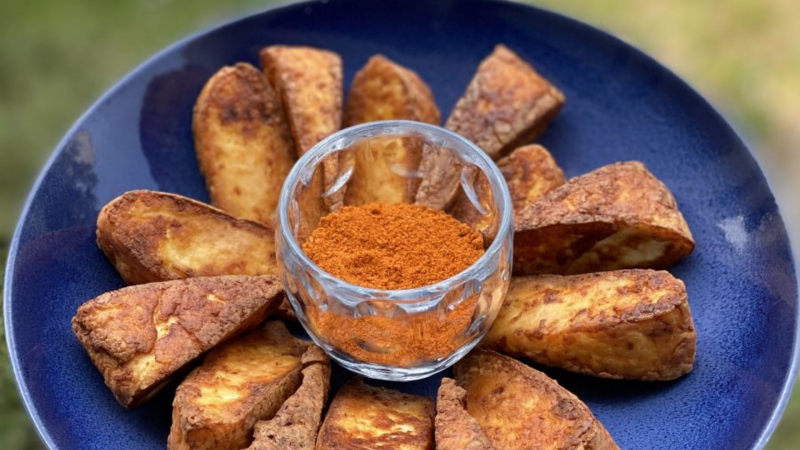
Photo: Les reines de la cuisine 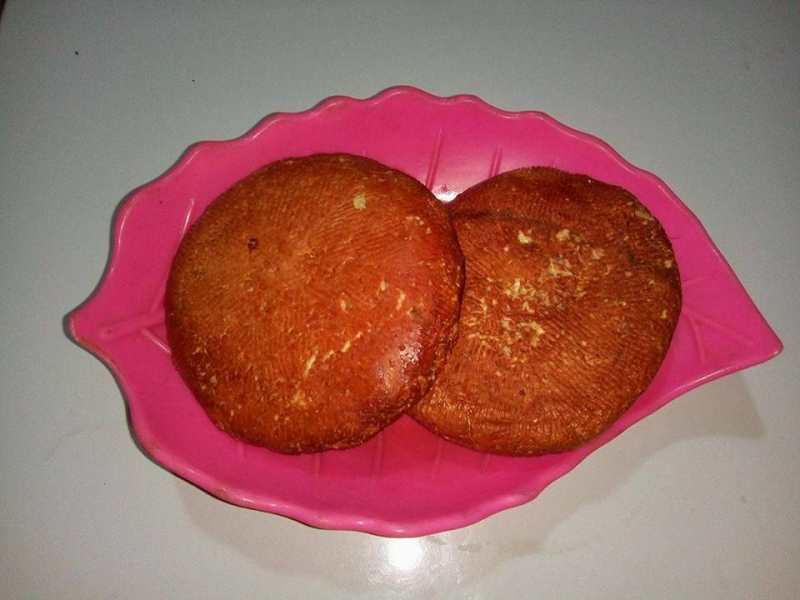
Pinterest -
Another mouth watering street food from Benin is yovo doko. Yovo doko is a traditional Beninese street food that is also a national dessert. Flour, water, yeast, and sugar are used to make these sweet fritters. The dough is deep-fried until a golden crust forms on the outside while remaining soft and tender on the inside.
Yovo doko fritters are traditionally served at any time of day and topped with powdered sugar. Because yovo doko is very similar to the French beignet, a popular type of fritter made from deep-fried choux pastry, the dish's name literally translates to European pastry.
A lot of travelers highly recommended this dish as one of the Syrian must-try foods.
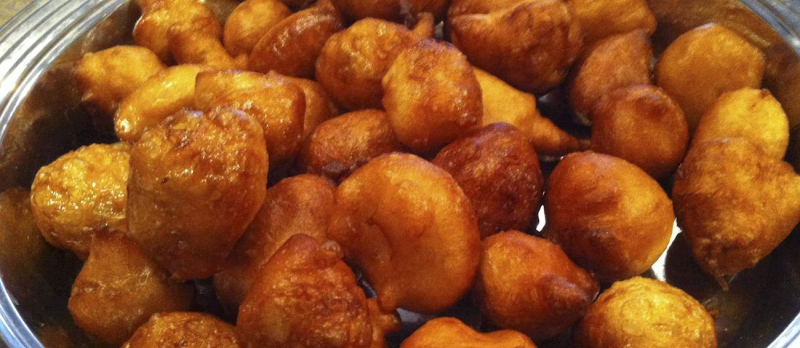
Photo: World Food Atlas 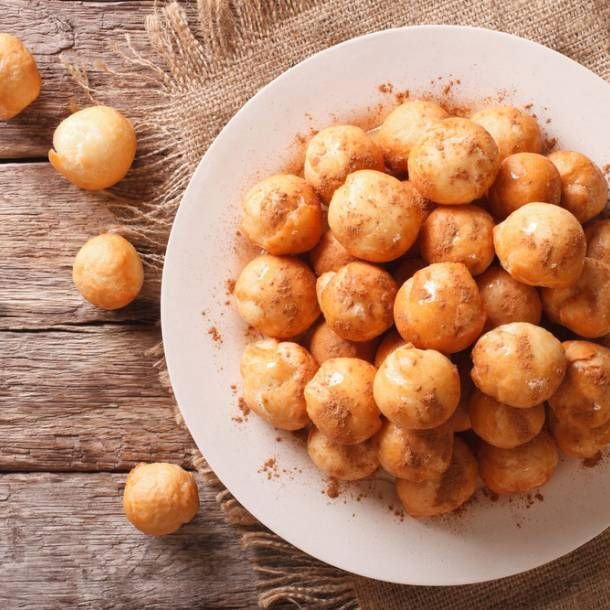
Photo: Pinterest -
Dahomey fish stew is a Beninese dish made from fillets of firm, low-fat fish that have been rolled in flour and fried in oil until golden brown. They are then combined with cooked onions and tomatoes and simmered until the dish is ready to serve, ideally with rice.
The Dahomey Fish Stew's recipe is quite simple. Fillets are used in this traditional Beninese dish. The fillets are derived from a low-fat, firm fish. These are then dipped in flour before being deep-fried. The fried ingredients are mixed with tomatoes and onions and served over rice.
The dish is named after Dahomey, which was the name given to Benin in the early 1970s when the first recipe for this stew was published.
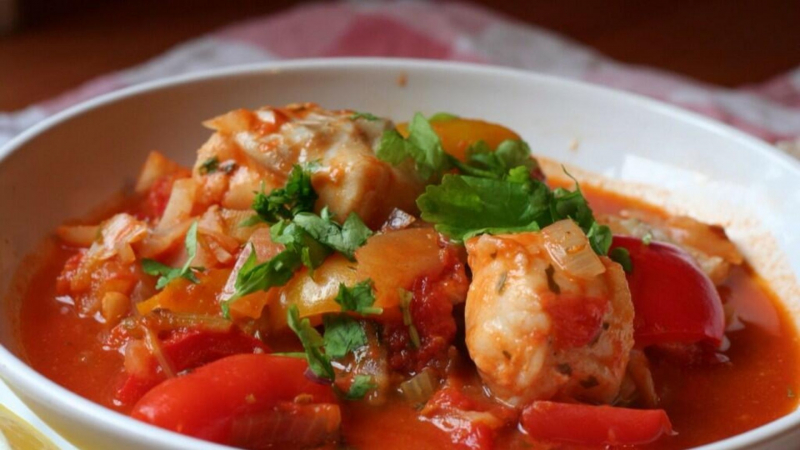
Photo: Twitter 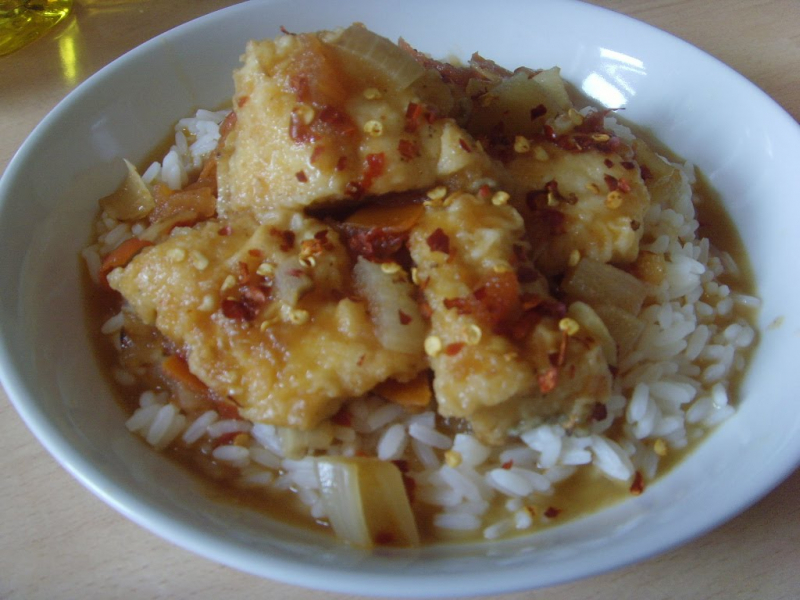
Photo: Foods of the World -
Kuli-kuli is Benin's national dish, providing nutrition, protein, and sustenance to the poor and often malnourished locals with limited food access. This straightforward meal consists of ground, smashed peanuts formed into balls or biscuits and deep-fried in their own oils. Kuli-kuli is salty, spicy, and extremely crunchy. It is made entirely of peanuts, but it requires some special techniques to prepare.
Before frying, the paste is mixed with salt, pepper, and, if available, some spices. Simply put, it is deep-fried peanut butter. The finished product does not appear appetizing, but it tastes quite good, with golden brown fritters served hot or cold as a snack.
Traditionally, kuli-kuli take the form of small sticks, rings, or small pieces of dough. These are the three most common forms in Africa, but there are others. These addictive little peanut-based snacks are imported from Ghana. They make an excellent aperitif snack in place of chips and salted peanuts. Kuli-kuli are ubiquitous snacks in Ghana and are popular in all West African neighboring countries.
Kuli-kuli can also be sprinkled on salads or served with koko, fura, kamu, or garri soakings, a mixture of garri, sugar, and water.
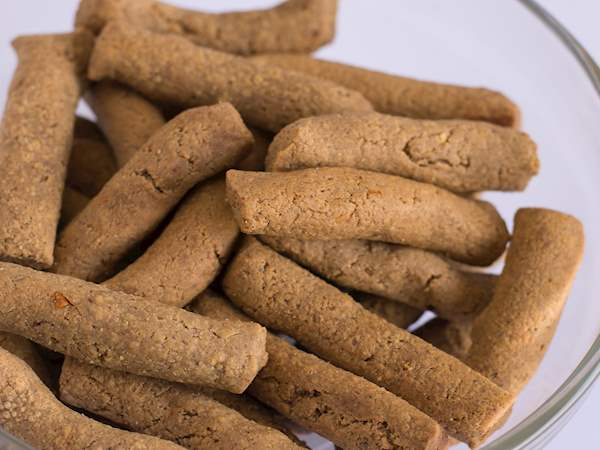
Photo: tasteatlas.com 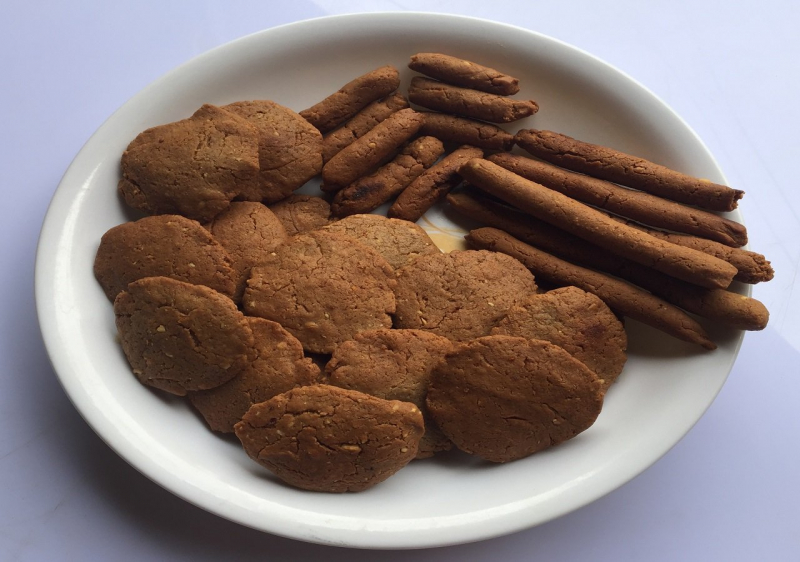
Photo: tasteatlas.com -
Another mouth watering street food from Benin is Dekounoun Sounnou (Seed Sauce). Palm nuts are used to make this seed sauce. This sauce is primarily consumed in southern Benin, particularly in the capital, Porto-Novo. Aside from its irresistible taste and flavor, this sauce is high in lipids.
To make the sauce more exotic, some households add vegetables or crabs to the already seasoned sauce. Télibo, a white or black corn paste, goes well with Dékoun Sounou.
Dekounoun Sounnou (Seed Sauce) is the favorite meal in Benin. In eastern Benin, it is served with crushed banana paste, also known as foutou banana.
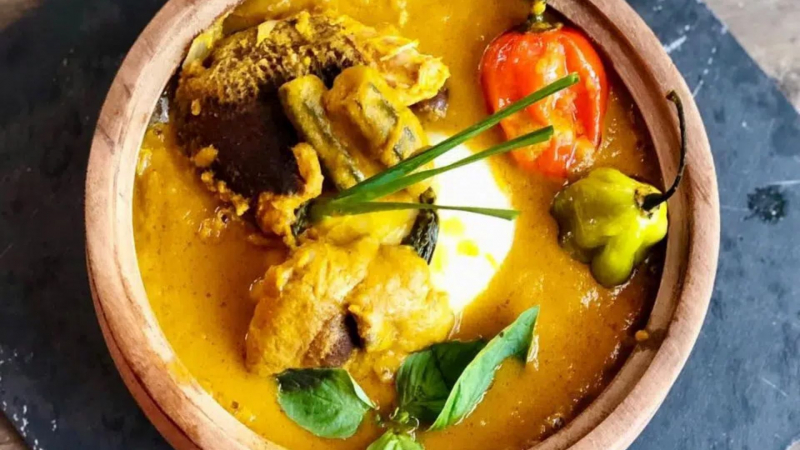
Photo: chefspencil.com 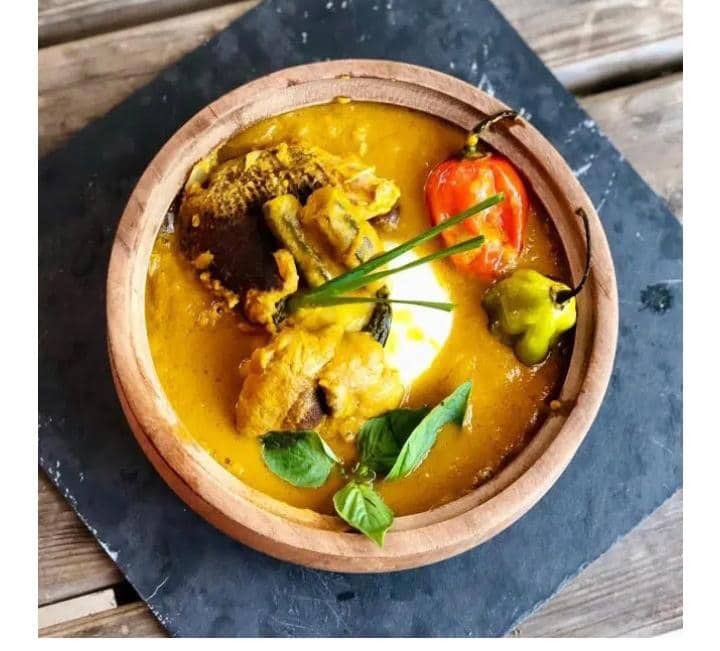
Photo: chefspencil.com -
Tchokourou, also known as Agoun in Fon, is a very special dish in Benin. It is, indeed, a favorite dish in the central and northern communities. It is well known for being the food of ceremonies, so much so that a seasonal festival is dedicated to it.
Tchokourou is much more popular during the yam harvest season. It's a fascinating meal that's also delicious and energizing. It is served with a peanut sauce and bush meat in the north, and vegetable sauces in the center of the country.
If you plan a trip to Benin in the future, try this dish at least once. Your trip will not be complete without trying this dish. Many visitors are surprised by its unique taste and say that they had a good experience with it.
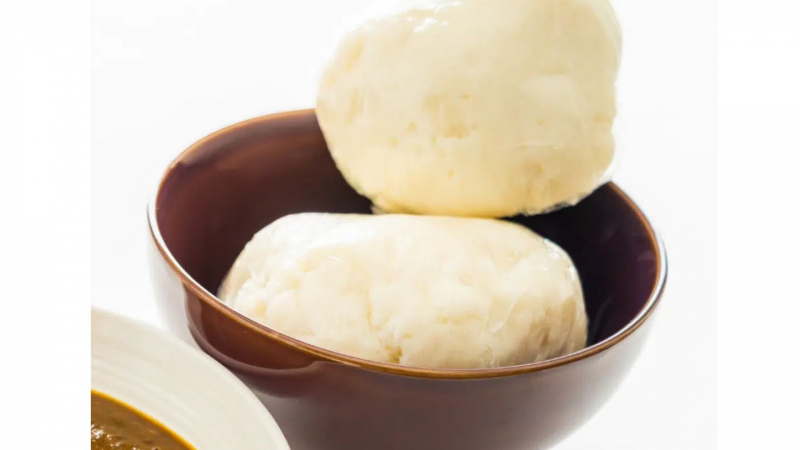
Photo: chefspencil.com 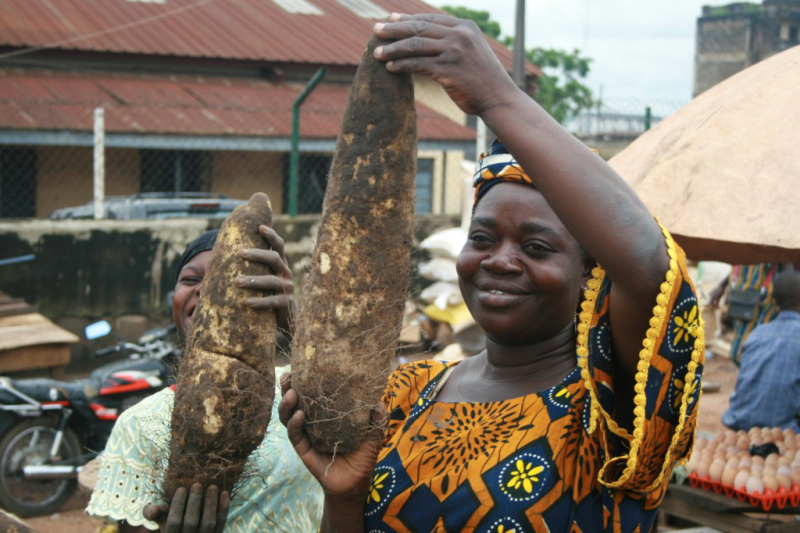
Photo: Smithsonian Folklife Festival - Smithsonian Institution -
It is one of the Nigerian Swallows (Nigerian fufu) eaten throughout the country and is also known as eba, fufu, and garri. However, it is widely cooked and consumed in Benin as well. Eba is a common type of swallow (Fufu) in Nigeria. It is made from garri, which is a type of processed cassava. It goes well with soups such as Efo riro, Okro soup, Afang, and others.
It is made by processing cassava, which is known as garri. There are various types of garri depending on the state and method of processing, such as garri ijebu, garri oyo, and garri ibo. Garri ijebu is a sour variety that can be consumed as well as used to make eba. Ibo garri is typically made with palm oil, which gives it a yellow color. The Yorubas do not prefer to drink this type.
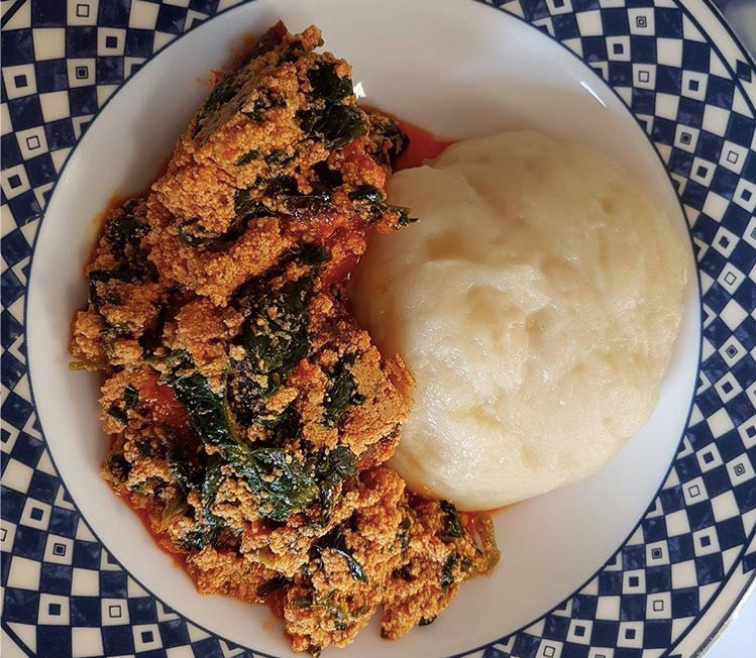
Photo: OkayAfrica 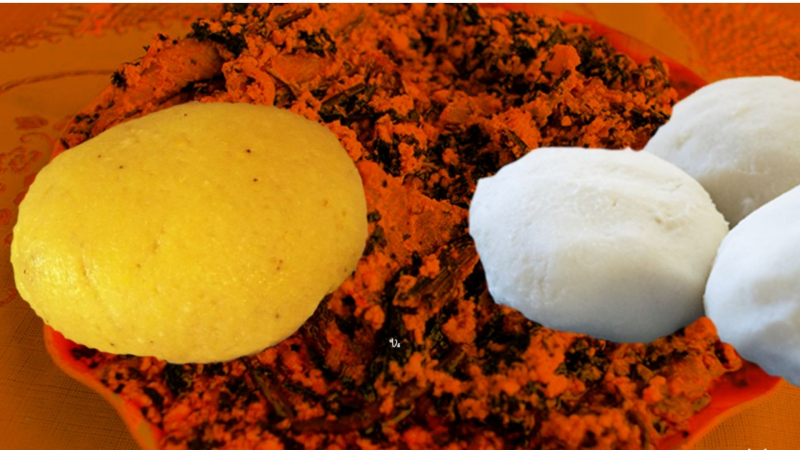
Photo: Daily Advent Nigeria -
The next great dish Toplist recommends to you who will visit this country is Akkara. Akkara is a delectable appetizer or snack. You don't have to eat this food at a specific time. It tastes like beans. Dried white beans, salt, chopped onions, flour, cayenne pepper, and oil are the main ingredients needed to make akkara.
These delicious little appetizers are known as Akkra Funfun. They could be eaten as a snack at any time. The bean flavor is delicious, and the cayenne pepper adds a nice little kick to the batter. If you go on a trip to Benin, you can enjoy these little treats. It is unquestionably an intriguing and amazing experience.
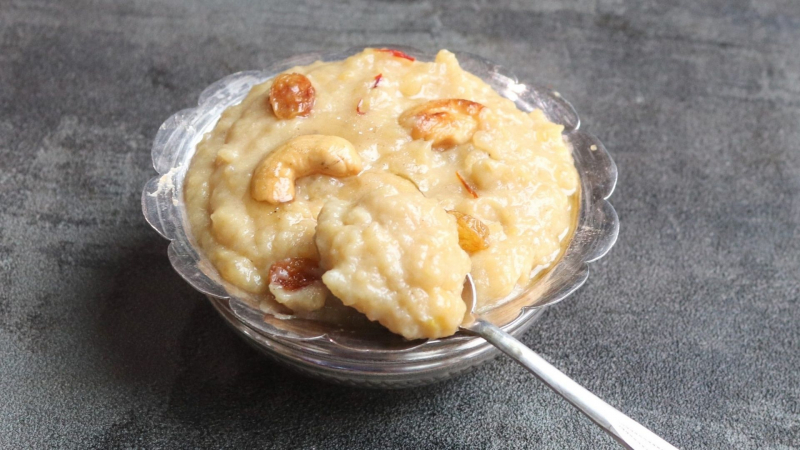
Photo: Traditionally Modern Food 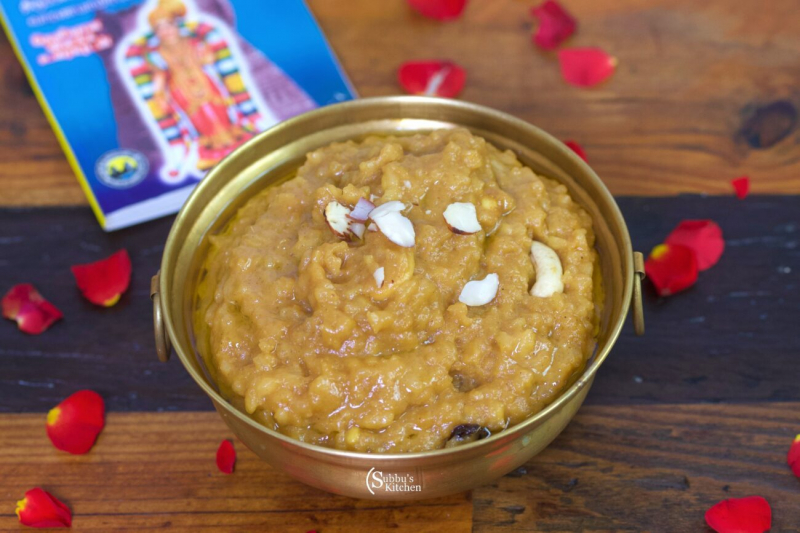
Photo: Subbus Kitchen










